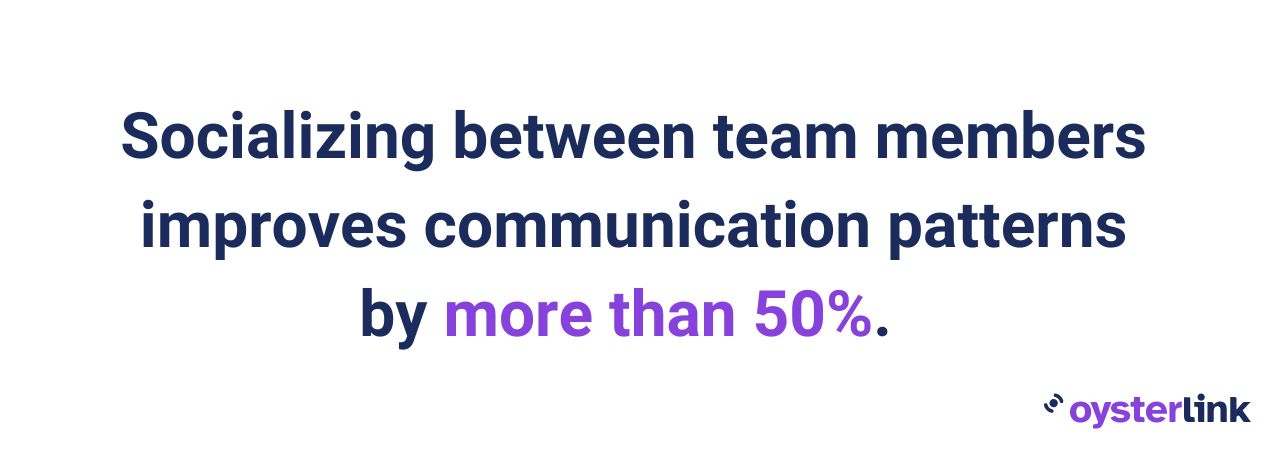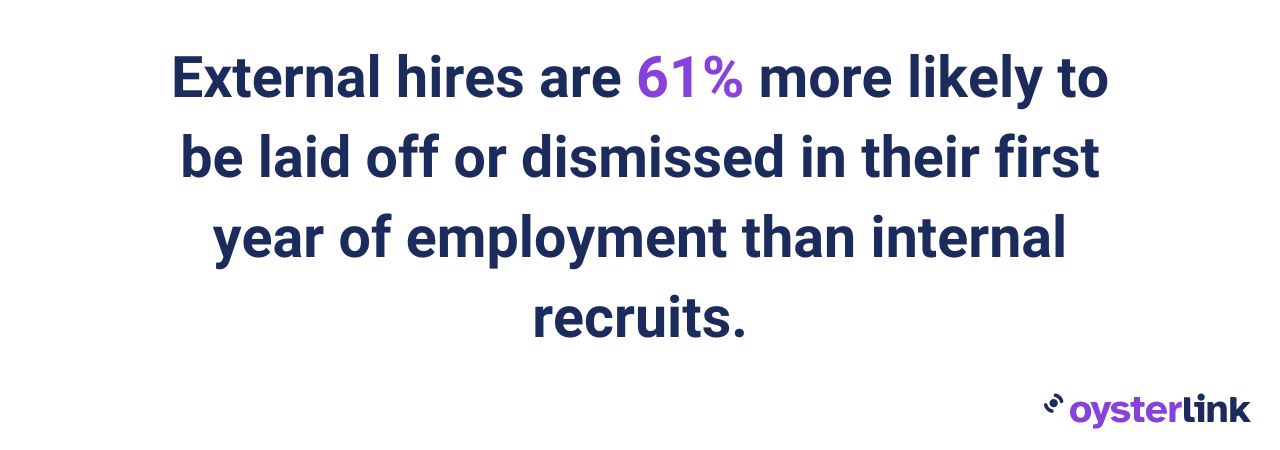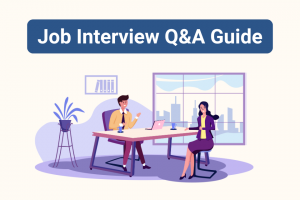Half of 3,500 respondents in a recent survey admitted to accepting a job offer only to back out later. This underscores the importance of careful consideration when faced with a job offer, especially when excitement and anticipation are high.
Beyond the initial allure of a promising role and a competitive salary, there are various factors that profoundly impact long-term success and satisfaction with your new job.
In this guide, we’re not just scratching the surface; we’re diving deep into the 35 questions to ask before accepting a job offer. These questions are designed to help you discern whether a potential job will be truly fulfilling or merely meet your basic expectations.
Why Is It Important To Ask the Right Questions Before Accepting a Job Offer?
Before accepting a job offer, it is crucial to ask the hiring manager all the right questions. This way, you ensure that the position aligns with your career goals, values and expectations.
Making an informed decision at this stage can save you from potential dissatisfaction and regrets down the line.
Some common consequences individuals might face when they fail to ask hiring managers the right questions before accepting a job offer include:
- Mismatched expectations: Without clarifying expectations, you might find yourself in a role that doesn’t align with what you had in mind. This could involve the nature of the work, the level of responsibility, etc.
- Limited growth opportunities: Failing to ask the hiring manager about opportunities for professional development and advancement may lead to stagnation in your career. A lack of growth prospects can result in frustration and disappointment over time.
- Poor team dynamics: Neglecting to ask the hiring manager about the personalities, working styles and team dynamics within the company may result in being in a team where you don’t mesh well. A lack of synergy can lead to interpersonal conflicts, making the work environment challenging and impacting overall job satisfaction.
- Poor work-life balance: Failing to discuss expectations around work hours, the option to work remotely and the general work environment might lead to a poor work-life balance.
- Unpleasant company culture: Overlooking questions about company culture, team dynamics and management styles may result in finding yourself in a workplace that doesn’t value the same principles as you do. A toxic work culture can be detrimental to your mental health and job satisfaction.
- Insufficient compensation and benefits: Failing to ask about details regarding the compensation package, you might find yourself in a situation where your financial expectations are not met. This can lead to dissatisfaction and potentially impact your overall quality of life. Furthermore, neglecting to ask if these aspects are negotiable could further limit your ability to secure a more favorable package.
- Mismatched values: Failing to explore the company’s values and how they align with your own may lead to ethical dilemmas or a general sense of discomfort if you find yourself working for an organization whose principles don’t resonate with yours.
- Absence of flexibility: Overlooking discussions about flexibility in work hours, remote work company policies and general work arrangements might lead to dissatisfaction if you were expecting or hoping for more flexibility.

What Questions Should You Ask Before Accepting a Job Offer?
Let’s explore five distinct categories of questions you should consider asking your potential employer before accepting a job offer:
Category 1: Questions About Company Culture
Asking this set of questions in a job interview is crucial for:
- Aligning personal values with workplace ethos
- Enhancing job satisfaction, productivity and retention
- Facilitating smooth integration into the team and organization
Here are five important questions to ask about company culture:
1. How would you describe the company’s culture?
Understanding the company’s culture is vital for assessing if it aligns with your personal values and work preferences. It sets the tone for your daily environment, influencing your job satisfaction and overall professional experience. According to research, 72% of job applicants need to understand the workplace culture before accepting a job offer.
2. What is the communication style within the company?
Knowing the company’s preferred communication style helps you adapt and thrive in the workplace. Understanding the tone and language used in communication, the frequency of interactions and the channels through which team members communicate ensures effective collaboration and reduces the risk of miscommunication.
Here’s a short YouTube video that explains four communication styles in the workplace in a fun and engaging way:
3. Can you describe the company’s approach to diversity and inclusion?
This question allows you to assess whether the organization actively promotes a diverse workforce, not only in terms of gender, ethnicity and age but also in embracing a variety of perspectives, experiences and backgrounds.
4. What social activities or team-building events does the company organize?
The company’s commitment to organizing social activities reflects its dedication to fostering team camaraderie and cultivating a positive work culture. Engaging in these events not only strengthens relationships but also uplifts morale, contributing significantly to the creation of a supportive and cohesive work environment.
According to research, socializing between team members improves communication patterns by more than 50%.

5. How does the company prioritize employee well-being, especially during challenging times?
This question allows you to gauge the level of support and resources available to navigate difficult situations, ensuring your mental health and overall well-being are prioritized.
Get more career advice delivered to your inbox
Category 2: Questions About the Role
This set of questions is crucial for:
- Gaining insights into specific challenges and opportunities the position offers
- Ensuring alignment between your skills, interests and career goals with the job responsibilities and expectations
- Clarifying expectations to enhance your performance and job satisfaction
Here are five important questions to ask about the role:
1. What are the daily job responsibilities of this role?
This question will help you get clarity on your expected contributions, ensuring that you can perform effectively and contribute positively to the team. It could also help you determine if you can envision yourself engaging in these tasks daily, for the long haul.
2. What are the most challenging aspects of this role?
Asking hiring managers about challenges prepares you for potential hurdles and ensures realistic expectations. Knowing the difficulties associated with the role helps you assess your readiness and willingness to tackle these challenges, contributing to better job satisfaction and performance.
3. What are the key performance indicators for success in this position?
Understanding key performance indicators (KPIs) allows you to align your efforts with organizational goals, ensuring that you can contribute meaningfully to the success of the team and the company.
4. What are the business hours, and what is the anticipated work schedule?
Asking about the business hours and work schedule is about understanding how the role fits into your life.
While business hours refer to the designated hours during which a company operates, the work schedule outlines the specific hours an employee is expected to work. Understanding both helps manage work-life balance and plan personal commitments.
5. When is the expected start date, and when does the company need to have your decision?
Knowing the start date helps you plan your transition, and asking about the deadline for your decision is crucial for managing expectations on both ends. It demonstrates your commitment to the hiring process and helps the company manage its recruitment timeline efficiently.
Category 3: Questions About the Team
This set of questions is crucial for:
- Assessing integration potential by understanding team structure, collaboration style and colleague personalities
- Building effective professional relationships through understanding team dynamics
- Contributing positively to collective goals by aligning with the team’s working style and ethos
Here are five important questions to ask about the team:
1. Who would be my manager in this role?
Knowing your direct manager or immediate supervisor and their respective role establishes a clear reporting structure. It helps you understand the leadership style and communication expectations and provides insights into your day-to-day interactions within the company.
2. How many people are on my team?
The size of your potential team influences collaboration dynamics. A smaller team might mean a more intimate working environment, while a larger team could offer diverse perspectives. This knowledge helps you anticipate the level of collaboration and support available.
3. How is work distributed among team members?
This question goes beyond individual responsibilities, providing insights into the efficiency and fairness of workload distribution. Understanding the team’s workflow ensures a more seamless integration into the team.
4. Can you describe the team dynamics?
Team dynamics affect your work environment and professional relationships. Understanding how the team collaborates, communicates and approaches tasks allows you to gauge your fit within the existing team culture.
5. How is feedback provided within the team, and how often?
Understanding how feedback is given and received within the team is crucial for your professional development and growth within the organization. Regular and constructive feedback fosters improvement, enhances communication and strengthens team cohesion. Knowing the feedback mechanisms and frequency helps you adapt to the team’s communication style and expectations.
Category 4: Questions About the Salary and Benefits
This set of questions is crucial for:
- Evaluating the overall compensation package and assessing alignment with financial goals
- Learning about the benefits such as health insurance, gym memberships and other perks that enhance job satisfaction and well-being
- Making informed decisions about the value proposition of the job offer and its long-term viability for personal and financial growth
Here are five important questions to ask about the salary and other benefits:
1. How often do employees typically receive raises?
This question provides insights into the timeline for potential salary increases, allowing you to plan your finances effectively and assess your long-term prospects within the organization. Understanding how often employees typically receive raises also gives you a sense of the company’s commitment to rewarding performance and fostering career growth.
2. Are there opportunities for performance-based bonuses, and how are they awarded?
If the company implements a bonus system, understanding how bonuses are awarded provides insight into its recognition and reward structure. This insight can motivate you to excel in your role, knowing that your efforts may be recognized and rewarded appropriately.
3. What does the benefits package include?
Benefits, another negotiable aspect aside from salary, play a vital role in understanding your overall compensation The benefits package typically includes a range of offerings designed to support your well-being, financial security and work-life balance. Some common components of a benefits package are:
- Health insurance
- Vision insurance
- Retirement plans
- Paid time off (PTO)
- Life insurance
- Disability insurance
- Flexible Spending Accounts (FSAs) or Health Savings Accounts (HSAs)
- Wellness programs
- Gym memberships
- Stock options or equity
- Childcare assistance
- Covered relocation expenses
- Family premium
4. Could you share details about your PTO policy?
Knowing the PTO policy is essential for planning vacation and personal days, as well as managing unexpected circumstances.
Beyond just knowing the amount of PTO allotted, it’s also important to understand when you can start using your PTO and whether any unused vacation days can be carried over to the next year.
5. How is overtime or extra hours compensated, if applicable to the role?
Asking about overtime compensation provides clarity on potential earnings, helping with financial planning. The company’s approach to overtime reflects its commitment to work-life balance, ensuring fair treatment and preventing burnout.
Category 5: Questions About Career Development
This question is crucial for:
- Evaluating long-term viability of the position by examining opportunities, training programs and advancement prospects
- Ensuring alignment between job aspirations and organizational commitment to fostering professional growth
- Securing a role that offers a platform for continuous learning and advancement
Here are five important questions to ask about career development:
1. What would my initial training include?
A clear understanding of the training process facilitates a quicker integration into the company’s culture and operations. It sets the foundation for a successful start and demonstrates the company’s commitment to your professional development from the outset.
2. Does this position have a trial period, and how long would it be?
Asking about a trial or probationary period is essential for understanding how the company assesses your performance in the initial stages. It provides insights into the specific expectations, feedback processes and overall dynamics during the early phase of employment.
3. How does the company support ongoing learning and skill development?
Inquiring about the company’s approach to ongoing learning and skill development is crucial to understanding the opportunities for personal and professional growth. The chart below shows the average spend on workplace training per employee worldwide:
[Source: Statista]
This chart is interactive. Hover your mouse over different parts of the chart to see detailed data.
4. What career advancement opportunities exist for someone in this role?
Asking about career growth in a particular role is vital for planning your future. Understanding the potential for advancement and professional development opportunities within the company can help you set realistic career goals and make informed decisions about your long-term trajectory.
5. Do you promote from within the company, or do you tend to hire externally for higher positions?
This question sheds light on the company’s commitment to internal talent development. If it appears that the company mostly hires new employees for higher positions, it’s essential to inquire further about opportunities for advancement from entry-level roles.
According to Deloitte, organizations that promote internally are 32% more likely to be satisfied with the quality of their current employees. Furthermore, external hires are 61% more likely to be laid off or dismissed in their first year of employment than internal recruits in identical jobs, and they are 21% more likely to quit.

Explore More Career Advice
Now that you learned what questions to ask before accepting a job offer, consider checking out the following articles:
- How To Evaluate a Job Offer
- How To Accept a Job Offer
- How To Negotiate Salary After a Job Offer
- How To Decline a Job Offer
Stay tuned for more career advice and industry-specific tips to ensure ongoing success in your job search journey.




